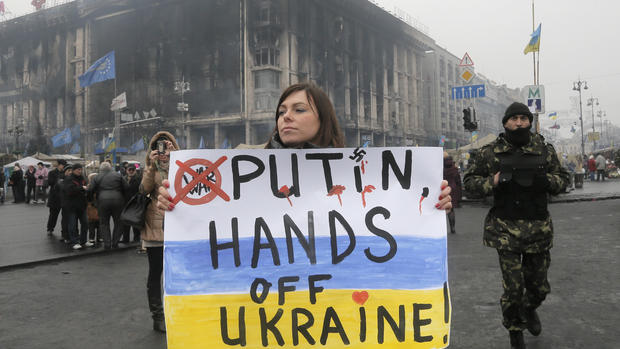Kissinger urges policy, not posturing, on Ukraine crisis
Former Secretary of State Henry Kissinger cautioned that leaders in the West and Russia "should return to examining outcomes, not compete in posturing" in order to solve the crisis unfolding in Ukraine.
In an op-ed piece published Wednesday in The Washington Post, Kissinger emphasized Ukraine's complex history, noting the significant political, religious and ethnic difference between the eastern and western parts of the country. He scolded Moscow and Washington for failing to try to bridge the gap between the two regions of Ukraine - and thereby bridge the gap between the East and West.
The 90-year-old Kissinger said that Washington and Moscow have in fact "made the situation worse" by not seeking reconciliation.
"Russia would not be able to impose a military solution without isolating itself at a time when many of its borders are already precarious. For the West, the demonization of Vladimir Putin is not a policy; it is an alibi for the absence of one," he wrote.
Michael Aron, the British ambassador to Libya, tweeted that U.S. Secretary of State John Kerry asked that he give the Kissinger op-ed to Russian Foreign Minister Sergey Lavrov. Kerry met with Lavrov in Rome Thursday to discuss the Ukraine crisis.
Kissinger offered four specific "principles" to achieve a sustainable outcome in Ukraine: First, he said Ukraine should be free to choose its economic and political alliances; second, the country should not join NATO; third, Ukraine should establish a government "compatible with the expressed will of its people" and emulate Finland in terms of international posture; fourth, Russia should recognize Ukraine's sovereignty over Crimea while Ukraine should reinforce Crimea's autonomy.
Kissinger conceded that this roadmap would not appeal to all parties - but the alternative is dangerous.
"The test is not absolute satisfaction but balanced dissatisfaction," he wrote. "If some solution based on these or comparable elements is not achieved, the drift toward confrontation will accelerate."
